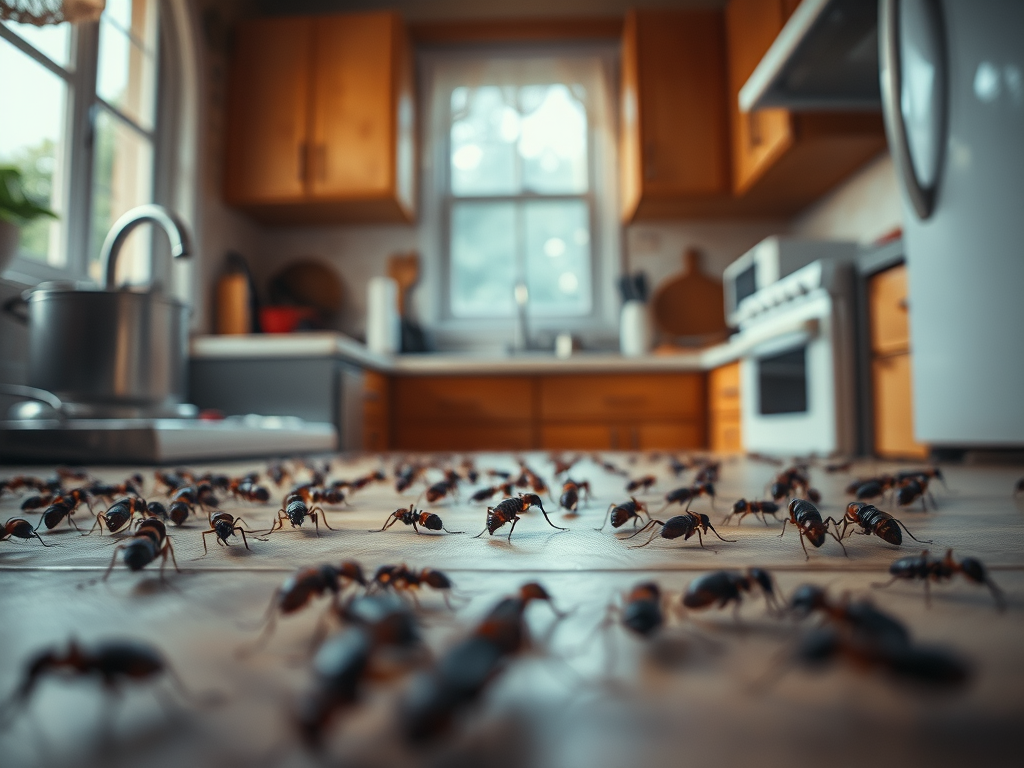
Introduction
Pest infestations are not only a nuisance but also a serious public health concern. In homes, workplaces, and public spaces, pests such as rodents, insects, and other unwanted creatures can carry diseases, contaminate food, and trigger allergies or asthma. Understanding the health risks associated with pest infestations is essential for maintaining a safe living environment. In this article, we’ll explore how common pests affect human health, the diseases they carry, and what can be done to prevent infestations.
Common Pests and Their Health Risks
- Rodents (Mice and Rats)
Rodents are among the most common pests found in urban and rural areas. They carry several diseases that can be transmitted to humans through direct contact or through their droppings, urine, and saliva.Health Risks:- Hantavirus: A serious respiratory disease caused by inhaling particles from rodent droppings or urine.
- Leptospirosis: A bacterial infection transmitted through water or food contaminated with rodent urine.
- Salmonellosis: Food poisoning caused by consuming food contaminated with rodent feces.
- Cockroaches
Cockroaches are resilient pests that thrive in homes, especially in areas with moisture and food. They are known to carry a variety of pathogens that can affect human health.Health Risks:- Allergies and Asthma: Cockroach droppings, saliva, and body parts can trigger allergic reactions and worsen asthma symptoms, particularly in children.
- Food Contamination: Cockroaches can spread bacteria such as E. coli and Salmonella, contaminating food and surfaces.
- Gastroenteritis: Cockroaches are known to carry pathogens that can cause diarrhea, vomiting, and stomach cramps.
- Bed Bugs
Bed bugs are small, parasitic insects that feed on human blood. Though they are not known to transmit diseases, their bites can lead to other health problems.Health Risks:- Skin Irritation: Bed bug bites cause red, itchy welts on the skin, which can lead to infections if scratched excessively.
- Sleep Disruption: Infestations can lead to anxiety and insomnia, affecting overall well-being.
- Allergic Reactions: In some cases, people may have an allergic reaction to bed bug bites, causing more severe skin irritation.
- Mosquitoes
Mosquitoes are notorious for being carriers of dangerous diseases, especially in warmer climates and during summer months. These pests breed in standing water and can quickly spread through an area.Health Risks:- West Nile Virus: Spread by mosquitoes, this virus can cause fever, headaches, and in severe cases, neurological damage.
- Zika Virus: A mosquito-borne disease that can cause birth defects if contracted by pregnant women.
- Dengue Fever and Malaria: Both diseases are transmitted by mosquitoes and can cause serious health complications if not treated.
- Ticks
Ticks are commonly found in wooded areas and can latch onto humans or pets. They are vectors for several debilitating diseases.Health Risks:- Lyme Disease: Caused by bacteria transmitted through tick bites, Lyme disease can lead to joint pain, fatigue, and neurological issues if untreated.
- Rocky Mountain Spotted Fever: Another tick-borne illness that causes fever, headaches, and rash, and can be fatal if not treated promptly.
- Fleas
Fleas are parasites that feed on the blood of mammals, including humans and pets. Flea infestations are common in households with pets but can also occur in other environments.Health Risks:- Bubonic Plague: Historically known as the “Black Death,” fleas can transmit this potentially deadly disease from rodents to humans, though it is rare today.
- Flea Allergies: Flea bites can cause allergic reactions, leading to skin irritation and discomfort.
- House Flies
House flies are not just an annoyance; they are known carriers of various pathogens due to their attraction to waste and decomposing organic material.Health Risks:- Cholera: House flies can spread cholera, a severe diarrheal illness, through contaminated food and water.
- Typhoid Fever: Another bacterial infection that can be transmitted by flies, causing fever, weakness, and abdominal pain.
- Dysentery: Flies can spread dysentery-causing bacteria, leading to severe diarrhea and dehydration.
Preventing Pest Infestations
To protect your home and health from the risks associated with pest infestations, prevention is key. Here are some steps you can take:
- Keep Your Home Clean
- Regularly clean areas where food is prepared and consumed to avoid attracting pests.
- Dispose of garbage properly and keep bins tightly sealed.
- Avoid leaving food out and store dry goods in airtight containers.
- Eliminate Moisture
- Fix any leaks in plumbing and ensure proper ventilation to reduce moisture, which attracts pests like cockroaches and mosquitoes.
- Remove standing water around your home to prevent mosquito breeding.
- Seal Entry Points
- Inspect your home for gaps, cracks, and openings where pests can enter. Use caulk, mesh, or other materials to seal these areas.
- Keep doors and windows closed or use screens to prevent pests from entering.
- Regular Inspections
- Schedule regular inspections, especially in areas like basements, attics, and crawl spaces, where pests are likely to hide.
- If you notice signs of pests (droppings, bite marks, nests), contact a professional pest control service.
- Use Pest Control Solutions
- For ongoing pest problems, consider using natural or chemical pest control methods, such as traps, baits, or insecticides, following safety guidelines.
Conclusion
Pest infestations pose a serious threat to human health, with potential consequences ranging from minor skin irritations to life-threatening diseases. Understanding the health risks associated with different pests and taking proactive measures to prevent infestations are essential for maintaining a safe and healthy environment. Whether it’s protecting your home from rodents, preventing mosquito bites, or keeping bed bugs at bay, addressing pest problems early can help protect both your property and your health.